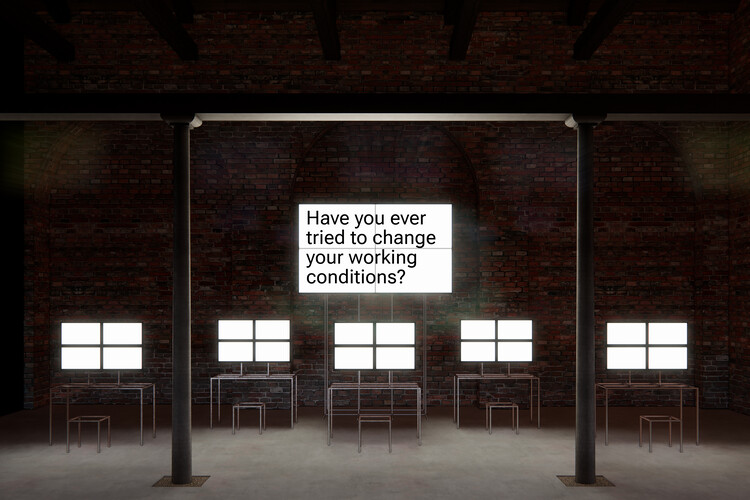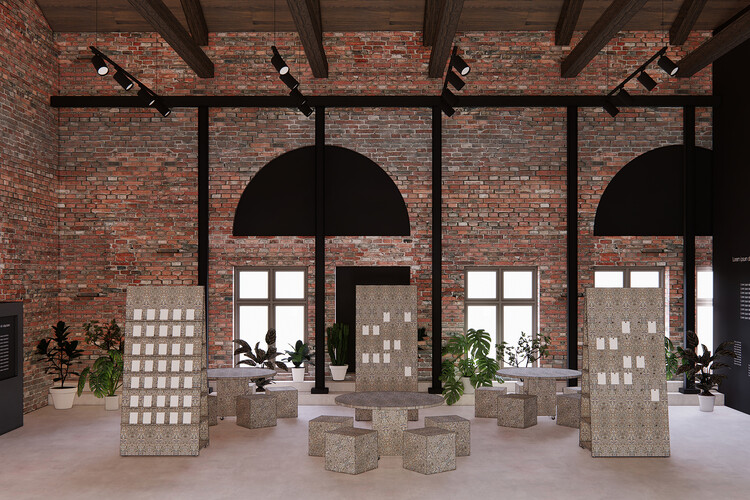The Czech Pavilion Addresses The Issue Of Unstable Employment Conditions At The 2023 Venice Architecture Biennale
The Czech Pavilion addresses the issue of unstable employment conditions at the 2023 Venice Architecture Biennale. The Czech Republic's National Pavilion displays "The Office for a Non-Precarious Future" at the 18th International Architecture Exhibition at La Biennale di Venezia.
Author:George EvansMay 18, 2023697 Shares139.3K Views

The Czech Pavilion addresses the issue of unstable employmentconditions at the 2023 Venice Architecture Biennale. The Czech Republic's National Pavilion displays "The Office for a Non-Precarious Future" at the 18th International Architecture Exhibition at La Biennale di Venezia.
The exhibition analyzes contemporary urgent concerns confronting the architectural profession, particularly young practitioners, by posing the opening question: ”How can architects design a better world if they themselves work in a toxic working system?.”
Helena Huber-Doudová commissioned the pavilion, which will feature pieces by exhibitors Elika Havla Pomyjová, David Neuhäusl, and Jan Netuil.
Because the Czech and Slovak Pavilions at the Giardini della Biennale are being rebuilt, the Czech Republic will have its show at the Arsenale in the Artiglierie area. The Czech and Slovak Pavilion in Giardini will solely act as a digital center to support the main presentation.
The exhibition's topic is based on the study report "Working Conditions of Young Architects," which determined in 2020 that over half of young professionals work as freelancers for a single contractor without job benefits like health insurance or social security.
The high number is accompanied by additional troubling indicators: 62% of young architects work overtime, including regular or irregular weekend labor, and 32% do not have a regular or steady income.
The actual exhibition is divided into two parts. “The Factory” is a representation of the status quo of the profession, a segmented production space where workstations and white monitors suggest an altar composition, with tasks and hierarchies clearly defined.
An animated infographic of data and diagrams aims to illustrate the complex working conditions of young architects in the Czech Republic. The second section is “The Laboratory,” an experimental space where architects can give the discipline a speculative and collective reinterpretation.
Through these interactive installations, the exhibition authors, architect, facilitator, and researcher Eliška Havla Pomyjová, architect David Neuhäusl and motion designer and professor Jan Netušil, aim to go beyond the simple presentation of the current condition and seek to find new solutions.
Other country pavilions have declared their exhibition themes as well, with some concentrating on critical societal concerns impacting their respective countries. Through an exhibition named "Not for Sale!", the Canadian Pavilion hopes to call attention to the problems caused by the housing crisis.
On a similar note, the Türkiye Pavilion challenges accepted perceptions of unused buildings in order to uncover more hopeful proposals for the future, whereas the Bulgarian Pavilion has chosen to focus the exhibition on the subject of depopulation, urban decline, and rural flight, as expressed through the image of abandoned schools found throughout the country.
The Czech Pavilion emphasizes the need for interdisciplinary collaboration and engagement with local communities. It encourages architects, policymakers, labor unions, and workers themselves to come together to find innovative solutions.
The exhibition serves as a platform for dialogue, where stakeholders can exchange ideas, share experiences, and develop strategies to improve working conditions.
Final Words
The Czech Pavilion at the 2023 Venice Architecture Biennale addresses the pressing issue of precarious working conditions. Through architectural interventions, the exhibition explores ways to create supportive, inclusive, and sustainable workspaces that prioritize the well-being and dignity of workers.
By raising awareness and facilitating dialogue, the pavilion aims to inspire positive change and advocate for fair and equitable working environments on a global scale.
Jump to

George Evans
Author
George Anderson, an exceptional architectural designer, envisions and brings to life structures that transcend the realm of imagination. With an unwavering passion for design and an innate eye for detail, George seamlessly blends form and function, creating immersive spaces that inspire awe.
Driven by a deep appreciation for the interplay of space, light, and materials, George's innovative approach redefines the possibilities of architectural design. His visionary compositions leave an indelible mark, evoking a sense of wonder and transforming the built environment.
George Anderson's transformative designs and unwavering dedication continue to shape the architectural landscape, pushing the boundaries of what is possible and inspiring generations to come.
Latest Articles
Popular Articles
